View cart “Pooja Ooti” has been added to your cart.
Kesar
₹190.00
Description
- Kesar have been derived from the Northern Indian region, Kashmir, where old saffron was produced.
- Saffron is the most expensive spice in the world.
- Saffron’s aroma is unique and there is no substitute for it.
- It is offered to deity idols and afterwards distributed and smeared on the foreheads of devotees.
Quantity
- 0.025 gms
Categories: Daily Pooja Ingrediants, Pooja Ingrediants
Related products
Janeu
₹40.00
Description
- The Janeu provides three strands, which symbolizes Hinduism's sacred trinity- Lord Brahma, Lord Vishnu & Lord Shiva.
- It is also synonymous with the three Vedas -Rig Veda, Sama Veda & Yajur Veda.
- In addition, they symbolize the three qualities - satogun - purity & goodness, Rajogun -love of delicate pleasure & Tamogun – inferior qualities. 20 pcs Gatta The size of janeu is full.
Quantity
- Set of - 2
Brass Panchaarti (Small)
₹660.00
Description
- The importance of lighting a diya during worship can be traced back to Vedas.
- Light symbolizes knowledge and darkness, ignorance.
- The Lord is the “Knowledge Principle” (chaitanya) who is the source, the enlivener and the illuminator of all knowledge.
- Hence light is worshipped as the Lord Himself. Knowledge removes ignorance just as light removes darkness.
- Also knowledge is a lasting inner wealth by which all outer achievements can be accomplished.
- Hence we light the lamp to bow down to knowledge as the greatest of all forms of wealth.
- We therefore keep a lamp lit during all auspicious occasions as a witness to our thoughts and actions.
Specifications
- Material – Brass
- Pack of – 1
- Weight – 245 g
Havan Samagri
₹140.00
Description
- The Havan Samagri is a sacred offering in the yagna and each item of the samagri is significant.
- The havan samagri is offered in the fire during yagnas and homas, after completion of every mantra chant.
- Havan Samagri (a mixture of various dried herbal , roots and leaves) is offered in the ablazed fire which disseminates in micro form, in the air, to purify the environment besides activating the air as disinfectant germicidal agent.
- It is anti-bacterial and is made from high grade raw materials. It is 100% natural Havan Samagri.
Contents
- Made from ayurvedic havan exotic herbs, Black til, Jo, 32 types of dhoop, Bhimseni kapoor, rose petals, sandalwood powder, lobaan, ghee, chandan
Quantity
- 100 gms
Copper Panchapatra
₹210.00
Description
- copper panchpatra is an integral part of poojas where in the holy charan amrit is placed before the pooja and then distributed upon the Pooja's completion.
- The Charanamrit literally means Amrit (Holy Nectar) from the Charan (Feet of the Lord) of the worshipped deity and is partaken as a sacred offering or a holy gift after the completion of the pooja.
- In many Hindu homes the cooked food is first offered to the Lord each day and is then consumed by everyone else.
- The offered food is mixed with the rest of the food and then served as prasad.
Specifications
- Material - Copper
- Pack of - 1
- Size - (W x H) 7 x 6 cm
- Weight - 33 g
- Capacity - 100 ml
Clove, Cardamom, Betelnut
₹95.00 – ₹210.00
Description
- Pack of cloves (long), cardamom (elaichi) and betelnut (supari) for use in daily pooja and rituals.
Used
- Clove in pooja rituals for fulfillments of desires and success in work (karya siddhi).
- Cardamom has a special aroma, which is pleasant and is used to attract and invoke deity energies.
- The betel nut is an integral part of the daily or ritualistic Pooja.
- It is also popularly used in the age old- custom of Indian eating.
- The supari is symbolic of the nut of the ego that must be offered on the altar of God.
- It represents the hard, coarse qualities that must be surrendered to God, leaving only the soft, pure qualities.
Quantity
- Clove, Cardamom, Betelnut - set of 5 , or 11 each
Supari / Betelnut
₹105.00
Description
- The betel nut/Supari is an integral part of the daily or ritualistic Pooja.
- It is also popularly used in the age old-custom of Indian eating.
- The supari is symbolic of the nut of the ego that must be offered on the altar of God.
- It represents the hard, coarse qualities that must be surrendered to God, leaving only the soft, pure qualities.
- Mostly symbolic, the Supari is many a times traditionally represented as the Nine planets (in the Navgrah Pooja) and takes the form of Deities like Brahma, Surya and others during different Pooja.
Quantity
- 11 pieces
Darbha Grass
₹215.00
Description
- Darbha Grass or Kusha Grass is scientifically known as Desmostachya bipinnata, commonly known in English by the names Halfa grass, Big Cordgrss, and Salt read-geass, is an Old World Perennial Grass. Kusha grass is a special type of grass which is used in Hindu rituals Pooja and Worship.
Uses
- While chanting hymns, hold a bunch of Darbha grass, dipping the tip into a pot full of water. The positive vibrations of the mantras recited are believed to be absorbed by water in the pot through the grass. Then the recharged water is sprinkled around to purify the surroundings.
- Also, while performing fire ritual, Darbha grass is placed on the four sides of the agni kund or sacred fireplace, While chanting and reciting verses from the Vedas, one has to wear a ring made of Darbha grass on one’s right hand ring finger as a protective shield from negative vibrations.
- The number of Darbha leaves used depends on the ceremony that is being performed. For ceremonies related to death, only one Darbha leaf is used. For auspicious and daily rituals, a ring made of two leaves is used for inauspicious but not death related functions — Amavasya Tharpanam, Pithra Pooja — a three - leaf Darbha ring is used. For temple prayers and pooja, a four-leaf Darbha ring is used.
Quantity
- Set of 5
Navgraha Samidha starter pack
₹55.00
Description
- The nine planets in our horoscope control our karma, our desires and their outcomes.
- Each of these nine planets exerts an influence in our lives, which is called "dasa".
- The Navgrahas are worshipped in every homa and yagna.
- These wooden sticks are offered to the homa fire.
- There are 9 sticks each representing one of the Navagrahas.
Quantity
- Set of 1


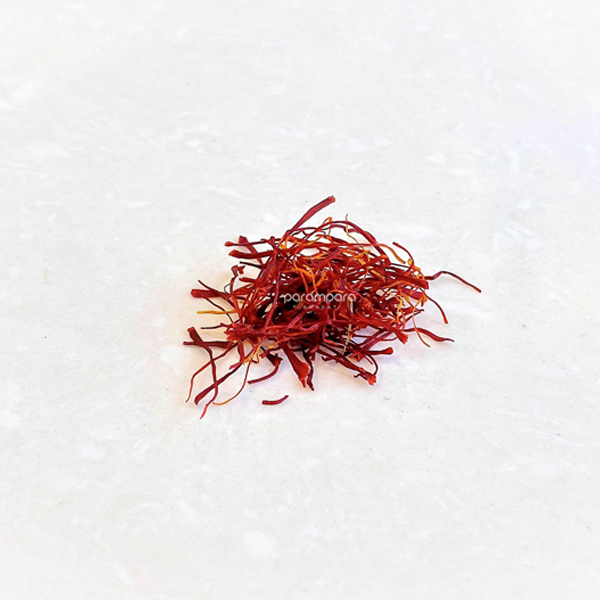
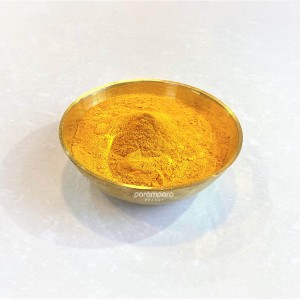
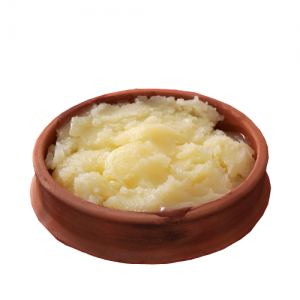
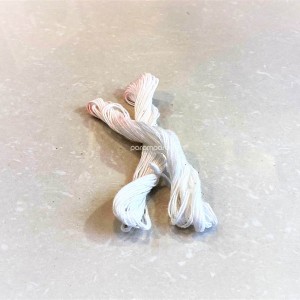

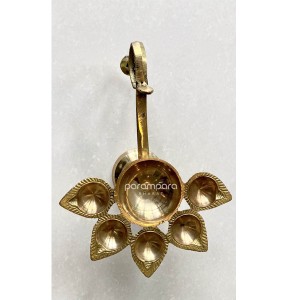

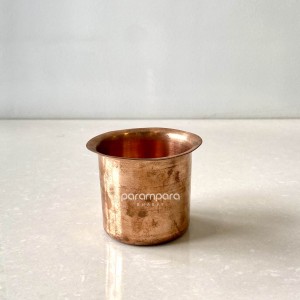
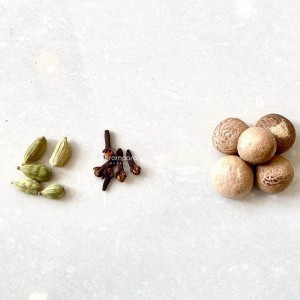
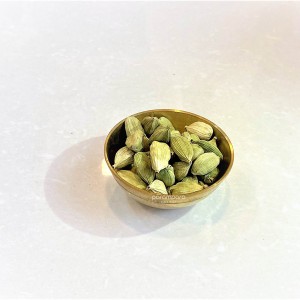
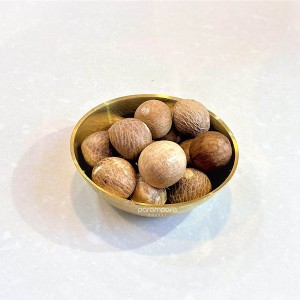

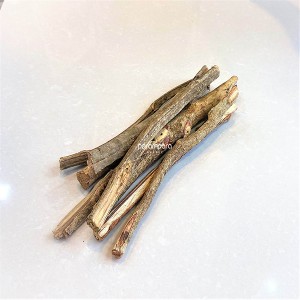
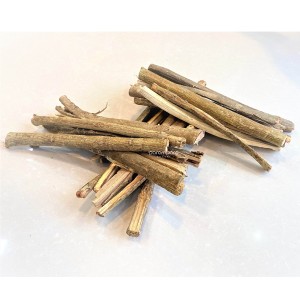


Reviews
There are no reviews yet.